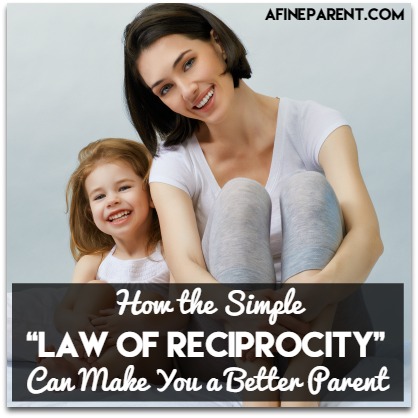 Imagine this:
Imagine this:
You have come home after an unusually busy day, full of errands and your arms stuffed with heavy packages.
You are greeted with a completely messy home with hungry, bored and tired kids. The television is blaring. Dinner has to be prepared.
The kids immediately swarm you, rattling off the day’s highlights, complaints about each other and homework that they need help with.
You dump the packages on the table and try to take stock of the situation. You attempt to simultaneously tell your 12-year-old son to turn down the volume of the TV and your 5-year-old daughter to stop jumping up & down on the new sofa. Both the kids are preoccupied and don’t listen to your repeated instructions.
Just when you think you’ve had enough….your daughter bumps into her brother who pushes her away. She slips and falls to the floor bringing an antique vase down with her.
SMASH!
The TV is the only noise now. Sonny boy smirks and whispers to sis, “Now you’ve done it!”
The little one looks at you with big eyes and is wavering between yelling at her brother angrily and howling in pain, unsure of which one will help her get a lesser penalty!
Such scenes have played out plenty of times at my home (maybe yours too). They have frequently ended with a big fight, a massive scolding, general sulking and me feeling totally burnt out.
But this one time…
I paused (with tremendous effort, I admit!). I inhaled deeply and let the breath out slowly, deliberately. I walked calmly up to my daughter, picked her up and hugged her.
There was stunned silence for a few seconds.
Then I told my kids, “Go get your books, I’ll clean up the mess.” Wordlessly, the kids obeyed me.
A couple of minutes later, miraculously, things were settled. Apologies were rendered and kids were perfectly well behaved. The antique vase no longer occupied its prime space in the living room, but everyone was breathing more easily and there was peace in the air!
By yelling and punishing them, I would have probably gotten a similar result…minus the inner peace and sustained change. The vase would still be broken – nothing can change that.
What helped bring the change this time around was what is called the law of reciprocity. We use this law often, in almost every aspect of life, but most of the time we don’t even realize it. However, if we were to be more conscious, it would benefit us much more in our day-to-day parenting.
So, let’s understand more about this law and how it can be applied to parenting.
What is the Law of Reciprocity?
The law of reciprocity basically states that every positive action begets a positive reaction. So, it works like this:
If you are nice to someone, they feel good. It creates a positive impression in their mind. In return, they feel obligated to be nice to you in equal measure or more.
It’s the ancient golden rule. Do unto others as you would have them do unto you.
So, in the above scenario, me disregarding or tolerating their misbehavior and forgiving them (contrary to their expectations and the norm) was perceived as a “good” action by the kids. In return, they obliged by showing “good” behavior – ending the “bad” behavior, quietly and immediately getting their books to do homework, accepting their misbehavior and apologizing.
The law of reciprocity has enjoyed a lot of focus in Social Psychology research. It’s a pity that it is applied heavily by professionals as a persuasive marketing and advertising tool based on the premise that we have a deep psychological need to be even with others to pay back a debt or favor.
Dr Robert Cialdini, Regents’ Professor of Psychology and Marketing, Arizona State University, spent 30 years studying the ways people can be influenced. He identified reciprocation as one of the foremost principles of persuasion.
I know. Many questions arise in your mind, the topmost of which are:
Can it Really be Applied to Parenting Though?
 I believe so. The law of reciprocity deals with positively influencing another person even if they happen to be kids. It can be used to bring out or shape desirable behavior in kids.
I believe so. The law of reciprocity deals with positively influencing another person even if they happen to be kids. It can be used to bring out or shape desirable behavior in kids.
Some approaches focus on correcting a child’s inappropriate action or changing misbehavior after it happens. Some approaches focus on pre-empting or bringing out the appropriate response or desired behavior by tapping into the inner good of the child and persuading him/her gently towards the desired direction.
Now, both the approaches meet different objectives, are effective depending on the circumstances and can be used in combination.
However, in my opinion and experience, the second approach is a more positive, proactive and planned approach to parenting. This calls for being more conscious of what motivates children, how they get influenced and how you can use that knowledge effectively in mentoring them.
This has been reiterated by Psychologist and author Laurence Steinberg. He states in his book The Ten Basic Principles of Good Parenting – “Effective parenting means not just relying on natural instincts but also on knowing what works and why.”
Isn’t it Manipulative and Selfish? To do a Good Deed to a Child Hoping it Will be Returned?
Well, it does not work exactly like that. As a parent, you are not doing or being good and then expecting the child to return it or give back to you, per se.
Instead, it is a simple practical approach based on the pay it forward philosophy.
You do a good or a positive deed to your child that is significant to him. He perceives you to be loving and caring. He imbibes that positive deed and is benefitted himself. He may, in return, engage in the expected or desired behavior. It may be directed back towards you. Or others.
In the big picture, he grows to be a good person, which at the end of the day is our goal as parents.
Consciously implementing the law of reciprocity promotes an active and alert parenting style as opposed to a default passive/reactive one. It helps you meet your goals of raising disciplined and well-adjusted children without being authoritarian or punitive. It is a positive, stress free and light approach.
So, in reality, the beneficiary of you using the law of reciprocity is primarily your child. It just makes you a better individual and better parent. A nice little bonus, don’t you agree?
Before You Put the Law of Reciprocity into Practice…
 There are certain prerequisites to be set in place before you actually apply this law of reciprocity effectively so you may enjoy its benefits!
There are certain prerequisites to be set in place before you actually apply this law of reciprocity effectively so you may enjoy its benefits!
Attitudes Towards Your Child
There is this beautiful quote of a great spiritual master that I hold very dear to my heart and have in all earnestness tried to follow.
Children are not empty vessels to be filled, but lamps to be lit
The fundamental view is rooted in the humanistic principles advocated by Carl Rogers which are as follows:
- The child is born with unique potential. The role of parent is to mould and nurture.
- The child is innately good (even a misbehaving one, however hard to imagine it may be!). The role of the parent is to bring out the basic goodness in the child.
- The child has a free will and can make choices. As a parent you can guide them towards more appropriate choices.
Attitudes Towards Yourself
I honestly think that we can’t be perfect parents with a 100% success rate no matter how hard we try.
At best, we can equip ourselves with the right knowledge and skills, make sincere and planned efforts and take each day as it comes.
It is very important to avoid the trap of unrealistic expectations (our own & other’s expectations) and guilt at apparent “failures”.
Law of Reciprocity in Action
 Here are a few tips for putting the law in action:
Here are a few tips for putting the law in action:
Use a Flexible Approach
Famous psychologist Diane Baumrind was a pioneer in researching parenting styles since the 60’s. A lot of research has happened since. But, there has been a general consensus that a parenting style involving loving yet firm and consistent disciplining methods is beneficial. Too much rigidity is detrimental.
One strategy to elicit compliance is to give kids the democratic feel of a “joint discussion and understanding” so that they feel all important and are prepared to cooperate. But, it is essential to list out clearly and beforehand, the common rules of conduct, the specific expectations from each kid and the consequences of not fulfilling them. It is also very important to be firm in carrying out the consequences.
Kids love surprises (actually most adults do, too!). So, a flexible approach including unexpected rewards for “good behavior” creates a conducive state of mind and paves way for further negotiations and future desired behavior.
Keep the Goal in Mind Always
This one is very simple but very crucial!
At all times, you have to remember you are not trying to outsmart or manipulate the kids for selfish purposes.
It is smart yet positive parenting.
 Be Genuine
Be Genuine
Learn the tricks of the trade well. Be creative but be genuine.
Children can spot a fake from a mile away! They will not take it lightly if they think they are being fooled.
Your words and actions should not contradict each other. Be careful of what you communicate through your body language. It’s important to connect with your child and convey good intentions.
The law of reciprocity is effective only if the kids perceive you as their genuine well-wisher or as the do-gooder.
Wisely Use the Element of Time and Surprise
The impact of a good deed is relatively short lived. Don’t expect to do something nice now and expect some good behavior after a week. Or even tomorrow. It simply doesn’t work that way.
After a misbehavior, the child (especially a teenager) expects an immediate showdown and prepares for resistance. Be unpredictable and shift strategy. Be patient and withhold reaction for a while. Thrown off guard, the child may feel more obliged to see the mistake and be willing to change.
Give & Do Things that Are Significant to the Child
Whatever good we do or give needs to be something that is dear to the child. The reward needs to be appropriate and meaningful. No matter how noble the intention, if the child has no value for the reward, then such a positive reward or deed will not be reciprocated.
Don’t get hung up on material rewards though. Giving your child your time, undivided attention and unconditional love; these are far more beneficial in bringing about positive effects.
Plan Frequent “Mommy and Me” Times
No matter what the age, every child blooms from the exclusive “we” time we share with them alone doing things that are special to them.
It could be any activity that they like, such as reading books, arts & crafts, going to the park, weekend specials or simply letting your hair down and goofing around together!
Sometimes, deep dinner table conversations can serve the purpose of enlightening their minds as well as strengthening the bond between you and your child.
And sometimes just be there to lend an ear…
Express Positive Emotions
It’s not sufficient to feel and experience love, affection, approval and pride for your child. It is immensely important to express and convey it at every possible opportunity. It could be verbally, through gestures or more physical with hugs and kisses.
Your expression of positive feelings towards your children creates more positive feelings and states in their mind. It nourishes them and nurtures their potentials. It leads to better self-awareness and self-management in them, of what they think, feel and do.
Appreciate, Encourage, Support
All of these act as huge motivators. You need to make sure when you communicate your expectation for a change in their behavior or a demand for a new behavior, it’s not being misconstrued that they are not good enough or they are lacking in some way.
It is necessary to appreciate and support them for whatever good behavior they already demonstrate while encouraging them to continue or improve. Do not ignore your child’s good actions, however small, or take him for granted.
Ensure you Reciprocate Adequately
You’ve got to be fully present and perceptive of your child’s intentions and efforts. Always remember to acknowledge and also equally important, to reciprocate.
It’s a cycle or a chain of reactions. Every tiny good turn of a child observed, acknowledged and reciprocated will further increase the chances of those very actions and behavior being repeated and enhanced.
Provide a Positive Environment
You owe it to your kids to provide them with a safe and healthy atmosphere as best you can. Greater the positivity you cultivate within yourself, the more it is likely to permeate through you, to the surroundings and people (read kids) around you.
Seek avenues of self-expression and personal growth for yourself. Deal with your negativities or insecurities effectively so that they don’t impact your kids. Be happy yourself and raise happy children.
To quote the motivational speaker Louise Hay,
The best thing we can do for our children is to learn to love ourselves, for children always learn by example
The 2-Minute Action Plan for Fine Parents
- Take time out to reflect on your attitude and parenting style. Pat yourself on the back for the little successes and be honest and identify where a little tweaking is required.
- Identify a new habit or trait to adopt and practice in front of your kids that you want them to pick up
- List out meaningful rewards or activities that can be potentially used as leverage while dealing with kids.
- Commit to any self growth activity that has been on your mind for a while and you have been postponing… something positive, inspiring and meaningful.
The Ongoing Action Plan for Fine Parents
- Initiate a move from a problem solver, task master, fire fighter mode of parenting into a more proactive and positive nurturer, motivator and leader mode.
- Create an overall warm and stable atmosphere to encourage the kids towards any desired behavior change or adoption of new behavior. Make real efforts to connect and bond with them.
- At a relatively inactive and quiet phase when the kids are dormant or the situation uneventful, don’t just feel relieved! Look at it as a wonderful opportunity to introduce something positive. Initiate them into a journey into a new direction. Of course, use your discretion. Do not over structure; sometimes let things be free flowing. The point is – let it be out of choice rather than dictated by circumstances.
Remember, the greater the investment, better the returns! This approach requires energy, time, and creativity. So, recharge your batteries by having some ongoing dedicated ‘me’ time. Do some planning but also be spontaneous! Anticipate and prepare yourself that not all your intentions will be fruitful. Enjoy the journey of parenting; face the peaks and the troughs with equipoise.
Wow beautiful article Sunita. U have given a lovely insight about parenting. Very very informative and helpful for all parents. Thanx a lot dear.
That is one important information for me.
Great article. Thanks. How come none of the photos show any dads?
Thank you, Joe. I am really glad you liked it. You make a valid observation. I must assure you though, every bit of the article is applicable to either parent ! 🙂
Sorry about that, Joe. I’m the editor and responsible for pictures. It just seems like a lot of photos on the site I use to get pictures are of Caucasian women and children. I’ll try to include more dads and more diversity going forward.
Thank you for committing to more visual diversity going forward. I loved this article and was planning to share it with my students. But I was struck by just how ethnically monotone the stock photos were!